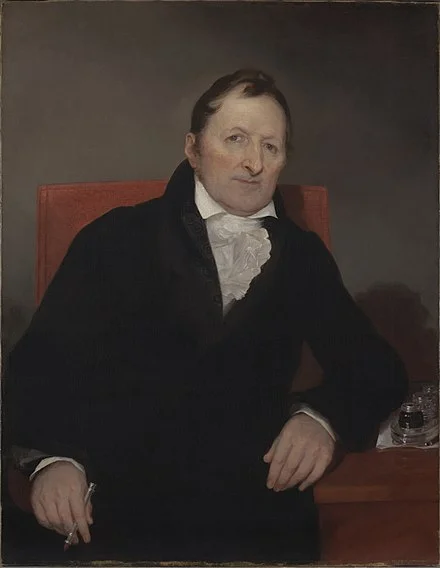Eli Whitney Shoves America Into The Industrial Revolution
Eli Whitney invented the cotton gin, which helped push the United States into the Industrial Revolution.
An unexpected side effect of Whitney’s invention, unfortunately, was the long lasting effect it had on the institution of American Slavery.
Background
Plantation slavery had hit a standstill.
By the mid-1790’s the growing of rice, indigo and tobacco in the southern United States had seen a decline in profitability. The land had been worn down from a century of raising the same crops and not properly looking after the soil.
Additionally, most Southerners were associated with the Democratic-Republican Party and wanted Americans to live on small, family owned farms.
Slavery was thought to have passed its usefulness and most people expected that horrid industry to gradually fade away.
Then Eli Whitney invented the cotton gin.
The Cotton Gin
Eli Whitney was a Massachusetts born Yale graduate. He created the cotton gin after seeing a cat attempt to pull a chicken through a fence.
Removing seeds from cotton had always been a laborious task. Whitney’s new machine allowed the user to pull the cotton through mesh, leaving the seeds behind (just like the cat which could only get the chicken’s feathers).
Before the gin, a person would only be able to clean a pound of cotton in a day. Now, one person could make over fifty pounds of usable cotton in a single afternoon.
Almost overnight, the entire southern portion of the United States began to grow ‘King Cotton’ on their plantations.
Suddenly, slavery was reenergized. The cotton gin, by the estimation of many historians, played a major role in dividing the Union for the next 60+ years, culminating in the Civil War.
Eli Whitney’s Plan
To be fair to Whitney, the boom to slavery was not his intention.
Quite the opposite, actually.
Eli’s plan was to have people send the cotton to him before it was cleaned. He would use the gin to process the product himself and keep a part of the profits.
Unfortunately for him, copyright law was still new in the United States and many people made their own versions of the cotton gin. Whitney found himself wrapped up in litigation for the next few years which left him deeply in debt.
Interchangeable Parts
Eventually Whitney gave up on his cotton business.
However, the gin did garner him a substantial amount of fame. Additionally, he was related to many high-ranking officials in Connecticut (his adopted home State). Because of this, Eli was able to secure government contracts to produce muskets for the U.S. Army. The Quasi-War with France had created the necessity of arming soldiers.
During this time, Whitney became a major proponent of interchangeable parts in machines. Although certainly not the only person speaking of this need, Eli’s fame made him the most recognizable figure in the movement.
Although he was specifically speaking about weapons in this manner, eventually interchangeable parts (along with Paul Revere’s assembly line style of manufacturing) became standard in American factories.
Between his cotton gin and his arguments for interchangeable parts, Eli Whitney played a major role in pushing the United States into the Industrial Revolution.
If you like this article, you might enjoy our biographies of John Stevens III or Josiah Hornblower.
To learn more about Eli Whitney, consider reading ‘Birth of American Technology’ (affiliate link below). It is a brief book but does a good job of discussing the entirety of Whitney’s life.
Also, please consider subscribing to our email list to receive a new Founder straight to your inbox every morning.






